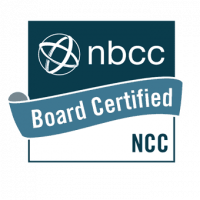PTSD Counseling Online: Guide to Finding a PTSD Therapist

Instantly book online with a PTSD Therapist
Table of contents
Embarking on the path to healing from Post-Traumatic Stress Disorder (PTSD) can be a daunting and overwhelming experience, filled with emotional and psychological challenges. Fortunately, the digital age has made finding support and comfort more accessible than ever, bringing PTSD counseling near you through online platforms. This comprehensive guide aims to help you navigate the process of finding a qualified online PTSD therapist, ensuring you can take the first steps towards reclaiming your sense of safety, stability, and inner peace. No matter where you are in your journey, remember that healing is possible and you don’t have to face it alone.
What Is PTSD counseling?
Post-Traumatic Stress Disorder (PTSD) counseling is a specialized form of therapy designed to help individuals who have experienced a traumatic event or series of events, which has led to persistent and debilitating psychological symptoms. PTSD counseling aims to address the emotional, cognitive, and behavioral aspects of PTSD, providing support and tools to help individuals process their trauma, manage their symptoms, and improve their overall mental health and well-being.
PTSD counseling can be conducted individually, in groups, or as part of a family therapy session, depending on the needs of the individual. It is essential to work with a qualified therapist who specializes in trauma and PTSD to ensure appropriate care and support throughout the healing process.
What is the most effective approach to treating PTSD?
Determining the most effective approach to treating PTSD depends on the individual’s unique needs, preferences, and circumstances. However, several evidence-based therapeutic approaches have consistently demonstrated effectiveness in treating PTSD. Some of the most effective methods include:
Cognitive Behavioral Therapy (CBT): CBT is a widely-used approach that focuses on identifying and challenging maladaptive thought patterns and behaviors, helping individuals develop healthier coping mechanisms and improving emotional regulation.
Prolonged Exposure Therapy (PE): PE is a specific form of CBT that involves gradually confronting and engaging with traumatic memories in a safe and controlled environment to reduce the fear and avoidance associated with them.
Cognitive Processing Therapy (CPT): CPT is another form of CBT that specifically addresses cognitive distortions and beliefs related to the traumatic event, helping individuals develop a more balanced perspective and process their experiences.
Eye Movement Desensitization and Reprocessing (EMDR): EMDR is a unique therapy that involves bilateral stimulation, such as eye movements or tapping, to help individuals process and integrate traumatic memories.
It is essential to recognize that different individuals may respond better to one approach over another. Therefore, a tailored treatment plan that considers the person’s specific needs, preferences, and background is crucial for successful outcomes. Collaboration between the individual and a qualified mental health professional specializing in trauma can help determine the most effective therapeutic approach for their unique situation.
Best PTSD Therapist in Frisco, TX.

MS, LPCC, LPC, NCC – Fully licensed in the states of Texas and Minnesota
Licensed Professional Clinical Counselor / Therapist, Nationally Certified Counselor
As a trained therapist with over 15 years of experience, Megan Corrieri is dedicated to helping individuals overcome the challenges posed by Post-Traumatic Stress Disorder (PTSD) and achieve their goals. With her personalized approach and focus on building trust, resilience, and emotional intelligence, Megan can help you navigate the complexities of trauma and develop a stronger, healthier mindset. Contact her today to schedule your PTSD counseling consultation and embark on your journey towards a brighter, more fulfilling future.
Heal and Transform with Megan Corrieri: Expert PTSD Counseling Therapist. She is Accessible to individuals within the states of TX and MN.
How does someone develop PTSD?
Post-Traumatic Stress Disorder (PTSD) develops in some individuals following exposure to one or more traumatic events. These events typically involve actual or threatened death, serious injury, or sexual violence, either experienced directly, witnessed in others, or learned about occurring to a close friend or family member. Not everyone who experiences trauma will develop PTSD, and the reasons why some individuals develop the disorder while others do not are complex and not yet fully understood. However, several factors can influence the development of PTSD:
Nature of the trauma: The severity, duration, and proximity of the traumatic event can impact the likelihood of developing PTSD. Experiencing multiple traumatic events or prolonged exposure to trauma can increase the risk.
Personal factors: A person’s temperament, genetics, and pre-existing mental health conditions can play a role in determining their vulnerability to PTSD. A history of anxiety or depression, for example, might increase the risk of developing the disorder.
Support system: The availability of a strong social support network can be protective against PTSD. Conversely, a lack of support or negative social interactions following the trauma may contribute to the development of PTSD.
Coping mechanisms: The way an individual copes with stress and adversity can impact their susceptibility to PTSD. Maladaptive coping strategies, such as substance abuse or avoidance, may increase the risk, while adaptive coping mechanisms, such as seeking support or engaging in self-care, can reduce the likelihood of developing the disorder.
Prior history of trauma: Individuals with a history of previous traumatic experiences, especially those occurring during childhood, may be more vulnerable to developing PTSD following a new traumatic event.
It is important to note that PTSD can develop at any age and can affect people from all walks of life. Early intervention and appropriate treatment can significantly improve outcomes and reduce the long-term impact of PTSD on an individual’s life.
How does a therapist diagnose PTSD?
A therapist or mental health professional diagnoses Post-Traumatic Stress Disorder (PTSD) by conducting a thorough assessment of the individual’s symptoms, experiences, and history. This assessment typically involves the following steps:
Clinical interview: The therapist will ask detailed questions about the individual’s traumatic experience(s), their current and past symptoms, and the impact of these symptoms on their daily life. They will also inquire about the person’s medical, psychiatric, and family history, as well as any substance use or other relevant factors.
Symptom criteria: The therapist will use the diagnostic criteria outlined in the Diagnostic and Statistical Manual of Mental Disorders (DSM-5) or the International Classification of Diseases (ICD) to evaluate the individual’s symptoms. For a PTSD diagnosis, the person must meet specific criteria, including:
Exposure to a traumatic event involving actual or threatened death, serious injury, or sexual violence.
Presence of intrusion symptoms (e.g., flashbacks, nightmares, or intrusive thoughts) related to the traumatic event.
Persistent avoidance of stimuli associated with the trauma.
Negative alterations in cognitions and mood (e.g., distorted beliefs about oneself or the world, persistent negative emotions, or feelings of detachment).
Marked alterations in arousal and reactivity (e.g., irritability, hypervigilance, or difficulty concentrating).
Duration and functional impairment: The therapist will consider the duration of the symptoms (at least one month) and the extent to which they cause significant distress or impairment in the person’s social, occupational, or other important areas of functioning.
Rule out other factors: The therapist will also assess whether the symptoms can be better explained by another mental health condition, a medical issue, or substance use.
Psychological testing: In some cases, the therapist may use standardized questionnaires or psychological tests to further evaluate the individual’s symptoms and determine the severity of PTSD.
How do I know if I have PTSD? What questions can I ask myself?
While self-assessment can help you gain insight into your experiences and symptoms, it is crucial to consult a mental health professional for a formal diagnosis of PTSD. However, asking yourself the following questions can help you determine whether you might be experiencing PTSD-related symptoms. You can use this as a helpful guide when talking with your therapist.
Have I experienced or witnessed a traumatic event involving actual or threatened death, serious injury, or sexual violence?
Do I experience intrusive thoughts, flashbacks, or nightmares related to the traumatic event?
Do I actively avoid thoughts, feelings, people, places, or situations that remind me of the traumatic experience?
Have I noticed negative changes in my thoughts or mood since the trauma, such as persistent negative emotions, feelings of detachment, or distorted beliefs about myself or the world?
Do I experience heightened arousal or reactivity, such as irritability, hypervigilance, exaggerated startle response, or difficulty concentrating and sleeping?
Have these symptoms persisted for at least one month and caused significant distress or impairment in my daily life, relationships, or work?
Do you feel constantly on edge, irritable, or as if you’re about to snap?
Are you dealing with anxiety, or depression?
Are you struggling with poor concentration, confusion, or a sense of being easily overwhelmed?
If you find yourself answering “yes” to several of these questions, it is essential to consult with us at NorthStar Counseling & Therapy. Remember, self-assessment is only a starting point, and a professional evaluation is necessary for a definitive diagnosis and effective treatment plan.
How common is PTSD?
PTSD is a relatively common mental health condition that affects people worldwide. According to the National Center for PTSD, part of the U.S. Department of Veterans Affairs, it is estimated that about 7-8% of the U.S. population will have PTSD at some point in their lives. The prevalence varies depending on the population group and specific traumatic experiences they might have encountered.
For instance, studies have shown that combat veterans and first responders have higher rates of PTSD due to their increased exposure to traumatic events. According to the National Center for PTSD, about 11-20% of veterans who served in Operations Iraqi Freedom and Enduring Freedom have PTSD in a given year. The same source estimates that about 12% of Gulf War veterans and 15% of Vietnam War veterans experience PTSD.
It is important to note that PTSD can affect anyone who has experienced or witnessed a traumatic event, regardless of age, gender, or cultural background.
Is online therapy effective for PTSD?
Online therapy, also known as teletherapy or telehealth, has shown promise in the treatment of PTSD. Several studies have found that online therapy can be as effective as in-person therapy for treating PTSD symptoms. The effectiveness of online therapy depends on various factors, such as the specific therapeutic approach used, the therapist’s expertise, and the individual’s engagement and commitment to treatment.
Some advantages of online therapy for PTSD include:
- Accessibility: Online therapy can make mental health services more accessible to people who live in the remote areas of Texas or Minnesota. In remote areas you likely don’t have access to highly specialized PTSD therapists like Megan Corrieri.
- Flexibility: Teletherapy allows for more flexible scheduling and can accommodate individuals with busy schedules or those who find it difficult to leave their homes due to physical or emotional barriers.
- Anonymity: Online therapy can provide a sense of anonymity, which might help reduce the stigma associated with seeking mental health treatment and encourage more people to seek help for PTSD.
However, online therapy might not be suitable for everyone. Some individuals may require more intensive or specialized care, and others may find it challenging to establish a strong therapeutic relationship through digital means. It is essential to discuss your needs and preferences with us at NorthStar Counseling & Therapy to determine whether or not we are an appropriate option for your PTSD treatment.
In summary, online therapy can be effective for treating PTSD, but its suitability and efficacy depend on the individual’s specific circumstances and the quality of the therapeutic intervention provided.
How would NorthStar Counseling & Therapy treat PTSD?
We generally use common therapeutic approaches as discussed above to treat PTSD. Keep in mind that the actual approach used for your specific case may vary based on your circumstances and needs.
Cognitive-Behavioral Therapy (CBT): CBT is a widely-used therapeutic approach for PTSD that aims to help individuals identify and change negative thought patterns and behaviors related to their trauma.
Prolonged Exposure Therapy (PE): PE is a specific type of CBT designed for PTSD, in which individuals are gradually exposed to traumatic memories, thoughts, and situations in a controlled and therapeutic manner. This helps reduce avoidance behaviors and improve emotional processing of the traumatic event.
Trauma-focused Cognitive Processing Therapy (CPT): CPT is another form of CBT specifically designed for PTSD. It involves helping individuals understand and change how they think about their trauma, allowing them to challenge and reframe their thoughts about the event.
Psychopharmacology: Medication may be prescribed alongside therapy to help manage symptoms of PTSD, such as anxiety, depression, or sleep disturbances.
Determining the most suitable treatment approach for your individual needs is crucial, and we are here to assist you with that. While we do not prescribe medication, we can refer you to a medical doctor who can or work in collaboration with a medical doctor of your choice who can prescribe medication upon request.
Discover hope and healing from PTSD with
NorthStar Counseling & Therapy
In Frisco, TX., our safe and supportive environment has helped numerous people regain control over their traumatic experiences. We offer various therapeutic approaches tailored to your needs and work alongside you as an equal partner in your treatment and recovery journey.

Megan Corrieri
Owner, Clinician, Wife & Mom
Share:
Sources:
- Lenhard, F., Andersson, E., Mataix-Cols, D., Rück, C., Vigerland, S., Högström, J., … & Serlachius, E. (2016). Therapist-guided, Internet-delivered cognitive-behavioral therapy for adolescents with obsessive-compulsive disorder: a randomized controlled trial. Journal of Medical Internet Research, 18(1), e2.
- Nelson, E. L., Barnard, M., & Cain, S. (2016). Treating childhood depression over videoconferencing. Journal of Child and Adolescent Psychopharmacology, 26(1), 29-36.
- Byrne, M., Egan, J., MacDermott, C., & Sarma, K. (2020). Using technology to deliver mental health services to children and adolescents: a scoping review of telepsychology studies. Journal of Marital and Family Therapy, 46(4), 679-695.
- Ebert, D. D., Zarski, A. C., Christensen, H., Stikkelbroek, Y., Cuijpers, P., Berking, M., & Riper, H. (2015). Internet and computer-based cognitive behavioral therapy for anxiety and depression in youth: a meta-analysis of randomized controlled outcome trials. Journal of Adolescence, 1(1), 14-31.











